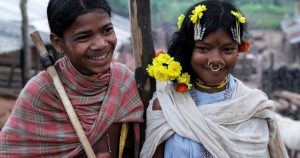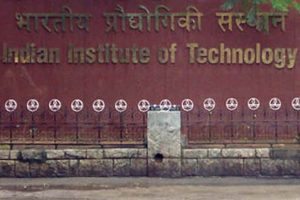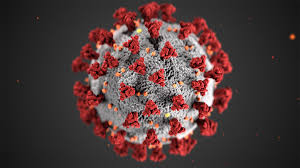Table of Contents
Daily Current Affairs for Government Exams:
Today Current Affairs:21th March 2020 for UPSC IAS exams, State PSC exams, SSC CGL, State SSC, RRB, Railways, Banking Exam & IBPS, etc
Contents:
- UN World Happiness Report- 2020
- Mahatma Gandhi Bunkar Bima Yojana (MGBBY).:
- Contempt of Court
- Whiteflies-resistant variety of cotton
- “Tech For Tribals” program :
- Defense Procurement Procedure 2020
- Medical Device Park Scheme
- Essential Services category.:
- Institutes of Information Technology (IIITs) bill 2020
- Annual Refresher Programme In Teaching (ARPIT):
- Modified Electronics Manufacturing Clusters Scheme 2.0 (EMC 2.0).
- ICMR guidelines for covid19
- Other important current affairs
1.UN World Happiness Report- 2020:

The Sustainable Development Solutions Network for the United Nations released the World Happiness Report on 20th March 2020.
- March 20 was designated as the World Happiness Day by the UN General Assembly in 2012.
- The World Happiness Report ranks 156 countries by how happy their citizens perceive themselves to be.
- The rankings are based on polling (Gallup World Poll) which looks at six variables: GDP per capita, social support, healthy life expectancy, freedom, generosity, and absence of corruption.
- Finland is ranked as the world’s happiest nation for the third consecutive year.
- Nordic states dominated the top 10, along with countries such as Switzerland, New Zealand and Austria.
- Luxembourg edged into the 10th spot for the first time this year.
- The countries at the bottom are those afflicted by violent conflicts and extreme poverty, with Zimbabwe, South Sudan, and Afghanistan classified as the world’s least happy nations.
- India, previously ranked at 140 dropped to 144.
- Nepal is ranked 92, Pakistan is at 66, Bangladesh at 107 and Sri Lanka at 130.
- India is a new entrant to the bottom-fifteen group.
Sustainable Development Solutions Network
- The SDSN, launched in 2012, mobilizes global scientific and technological expertise to promote practical problem solving for the Sustainable Development Goals (SDGs) and the Paris Climate Agreement.
- It was established under the auspices of the United Nations Secretary-General.
- The SDSN and the Bertelsmann Stiftung have been publishing the annual SDG Index & Dashboards Global Report since 2016.
2. Mahatma Gandhi Bunkar Bima Yojana (MGBBY).:

The Minister of Textiles informed Lok Sabha about the Mahatma Gandhi Bunkar Bima Yojana (MGBBY).
- The Ministry of Textiles is implementing converged Mahatma Gandhi Bunkar Bima Yojana (MGBBY) for providing social security benefits like life, accidental & disability insurance coverage to handloom weavers/workers in the age group of 51-59 years across the country, who have already enrolled under the scheme on 31.5.2017.
- The claim benefits are provided by LIC directly into the bank account of beneficiaries through Direct Benefit Transfer (DBT).
3.Contempt of Court:
The Supreme Court has held that courts are empowered to order parties in a contempt case to surrender their passport in order to ensure their presence in the proceedings.
- The court was hearing a contempt case in connection with a civil suit on the partition of a disputed property in Delhi.
- In India, the Contempt of Courts Act, 1971, divides contempt into civil contempt and criminal contempt.
- ‘Civil contempt’ is ‘wilful disobedience to any judgment, decree, direction, order, writ or other processes of a Court or willful breach of an undertaking given to the court’.
- ‘Criminal contempt’ is ‘the publication (whether by words, spoken or written, or by signs, or by visible representation, or otherwise) of any matter or the doing of any other act whatsoever which:
- Scandalises or tends to scandalize, or lowers or tends to lower the authority of, any court.
- Prejudices, or interferes or tends to interfere with the due course of any judicial proceeding.
- Interferes or tends to interfere with, or obstructs or tends to obstruct, the administration of justice in any other manner.’
- Judiciary ensures justice and equality to every individual and institutions, therefore, the makers of the constitution upheld the sanctity and prestige of the revered institution by placing provisions under articles 129 and 215 of the constitution, which enables the courts to hold individuals in contempt if they attempt to demean or belittle their authority.
4. Whiteflies-resistant variety of cotton.:

Recently, the National Botanical Research Institute (NBRI), Lucknow has developed a whiteflies-resistant variety of cotton.
- Whiteflies are one of the top ten devastating pests in the world that damage more than 2000 plant species and also function as vectors for some 200-plant viruses.
- Cotton is one of the worst-hit crops by whiteflies.
- Two-third of the cotton crop was destroyed by the whiteflies in Punjab in 2015.
- Even though Bt cotton is also genetically-modified cotton and present in the market for farmers’ usage, it is resistant to two pests only and not resistant to whiteflies.
- The leaf extract of an edible fern Tectaria Macrodonta causes toxicity to the whitefly.
- It works against whiteflies but is safe for application on the crop plants and provides protection from them.
- When whiteflies feed on doses of insecticidal protein of Tectaria Macrodonta, it interferes with the life cycle of insects.
- The whiteflies suffer from very poor egg-laying, abnormal eggs, nymph and larval development, and the poor overall growth of the fly.
- The Tectaria Macrodonta is found to be in-effective on non-target insects.
- Thus, it clearly shows that the protein is specifically toxic to whitefly and does not cause any harmful effects on other beneficial insects like butterflies and honeybees.
5.“Tech For Tribals” program :

TRIFED Launches transformational “Tech For Tribals” program in partnership with Institutes of National Importance (INIs) to develop Tribal entrepreneurship.
- A project aimed to transform 5 crores, Tribal Entrepreneurs, under the name “Tech for Tribal” has been launched by TRIFED with support from the Ministry of MSME.
- It was launched on19th March 2020 by TRIFED and IIT-Kanpur along with IIT-Roorkee, IIM Indore, Kalinga Institute of Social Science, Bhubaneshwar and SRIJAN, Jaipur in the first phase of organizing tribal entrepreneurship and skill development program.
- Tech for Tribals aims at capacity building and imparting entrepreneurship skills to tribal forest produce gatherers enrolled under the Pradhan Mantri VanDhan Yojana(PMVDY).
- The trainees will undergo a 30 days program over six weeks comprising 120 sessions. The Partners will develop course contents relevant to Entrepreneurship in Value Addition and Processing of Forest Produces.
6.Defense Procurement Procedure 2020.:

Raksha Mantri Shri Rajnath Singh unveils draft of Defence Procurement Procedure 2020.
- It aims at further increasing indigenous manufacturing and reducing timelines for the procurement of defense equipment.
- Indigenous Content (IC) stipulated in various categories of procurement has been increased by about 10% to support the ‘Make in India’ initiative.
- Leasing has been introduced as a new category for acquisition in addition to existing ‘Buy’ & ‘Make’ categories to substitute huge initial capital outlays with periodical rental payments. Here, the lessor can be both Indian as well as global.
- New Category Buy (Global – Manufacturer in India) has been introduced with a minimum 50% indigenous content on the cost basis of the total contract value.
- There is also long-term product support — which would be three to five years after the warranty period is over.
- A “price variation clause” has been introduced that will be applicable to all cases where the total cost of contract is more than Rs 1,000 crore and the delivery schedule exceeds 60 months.
- The first DPP was promulgated in 2002 and has since been revised a number of times to provide impetus to the growing domestic industry and achieve enhanced self-reliance in defense manufacturing.
7.Medical Device Park Scheme:

The Union Cabinet chaired by PM Modi approved the Medical Device Park Scheme. The scheme is to be implemented for the next five years.
- The GoI has approved Rs 13,760 crores for the scheme. The amount is mainly to be used in medical devices and drug production.
- The scheme aims to boost the domestic manufacturing of medical devices in the country.
- It includes setting up of medical device parks in Tamil Nadu, Kerala, Telangana, and Andhra Pradesh. Every park is to receive Rs 100 crores.
- The grants are to be provided to the state and the projects are to be implemented by respective state governments.
- The parks will help to reduce imports and also increase the standard of medical testing. Also, the scheme will help to reduce the cost of production.
- India is the fourth largest market for medical devices in Asia.
8. Essential Services category.:
Union Minister Piyush Goyal stated in Rajya Sabha that services rendered by Parliamentarians, doctors, and para-medics fall under the Essential Services category.
- Functioning of Parliament after invoking the Epidemics Act and notification restricting the movement of people above sixty-five years in the wake of Coronavirus does not violate any provision of the law.
- This was stated by Union Minister Piyush Goyal in Rajya Sabha.
- His remarks came in the wake of query raised by Anand Sharma of the Congress who said, most of the Parliamentarians above the age of sixty-five fall under the ambit of the notification.
- He questioned how the government could circumvent the provisions of the notification.
9.Institutes of Information Technology (IIITs) bill 2020:

The Lok Sabha passed a Bill that seeks to declare five Indian Institutes of Information Technology (IIITs) in public-private partnership mode as institutions of national importance along with existing 15 Indian Institutes of Information Technology.
- The Bill seeks to declare five IIITs set up under the PPP model in Surat, Bhopal, Bhagalpur, Agartala, and Raichur as institutions of national importance.
- Currently, these institutes are registered as Societies under the Societies Registration Act, 1860 and do not have the power to grant degrees or diplomas. On being declared institutions of national importance, the five institutes will be granted the power to grant degrees.
- The Bill seeks amendment to the Indian Institutes of Information Technology Act, 2014 and the Indian Institutes of Information Technology (Public-private Partnership) Act, 2017.
- The central government will contribute fifty percent towards the expenses of institutes functioning under the PPP model. 35 percent will be borne by the states and fifteen percent by the industries.
- As a special impetus to northeastern states, the central government will bear over fifty-seven percent of the expenses whereas industries will contribute around seven percent to the Institutes there.
10.Annual Refresher Programme In Teaching (ARPIT):

Recently, the Union Minister for Human Resource Development (HRD) informed Parliament about the Annual Refresher Programme In Teaching (ARPIT).
- 37,199 teachers were trained in 2018-19 under this program whereas, in 2019-20, 1,46,919 teachers were trained.
- It is an initiative for online professional development of 15 lakh higher education faculty using the Massive Open Online Courses (MOOCs) platform SWAYAM.
- For implementing ARPIT, 75 discipline-specific institutions have been identified and notified as National Resource Centres (NRCs).
- NRCs prepare online training material with a focus on the latest developments in the discipline, new & emerging trends, pedagogical improvements and methodologies for transacting revised curriculum.
- NRCs are located in a mixed range of institutions such as Central Universities, IISc, IUCAA, IITs, IISERs, NITs, State Universities.
- The training materials are uploaded and made available through SWAYAM. NRC also publishes the list of the faculty who have been certified.
Massive Open Online Course
- MOOC is a free Web-based distance learning program that is designed for the participation of large numbers of geographically dispersed students.
- The government has launched the SWAYAM platform for open online courses
- SWAYAM platform is indigenously developed by the Ministry of Human Resource Development (MHRD) and All India Council for Technical Education (AICTE) with the help of Microsoft.
- It is designed to achieve the three cardinal principles of Education Policy viz.access, equity, and quality.
- The objective of this effort is to take the best teaching-learning resources to all, including the most disadvantaged.
11. Modified Electronics Manufacturing Clusters Scheme 2.0 (EMC 2.0). :

The union cabinet chaired by PM Modi approved the Modified Electronics Manufacturing Clusters Scheme 2.0 (EMC 2.0). The scheme aims at improving the growth of the Electronics System Design and Manufacturing sector.
- The scheme aims at developing an entrepreneurial ecosystem, increase employment opportunities, attract investment. It will support the setting up of Electronics Manufacturing Clusters.
- These clusters set up under the 2.0 scheme will aid in setting up of common facility centers for the Electronic Manufacturing Clusters.
- The scheme will help in the availability of ready infrastructure to attract investment in the electronics sector.
- It will also attract new investments in the electronics industry and help in increasing employment opportunities.
- The scheme is to run for 8 years.
- The amount allocated to the scheme is Rs 3,762.25 crores.
12.ICMR guidelines for covid19:

The Indian Council of Medical Research issued new guidelines to test COVID-19.
- The ICMR has so far been conducting tests only on symptomatic patients (persons with symptoms of Corona Virus). However, the Council has now intensified random sampling.
- This includes people exhibiting flu-like symptoms. Such a step has been adopted mainly to check if community transmission is happening.
- Also, India is all set ready to go for “Janta Curfew” on March 22, 2020, where people will voluntarily stay inside homes.
- The Symptomatic patients in the new guidelines include all the hospitalized patients. It also includes symptomatic health care workers. High-risk contacts of the infected persons are to be tested once in 5 days.
- The new measure has come as India saw a sudden increase of 63 new cases on March 20, 2020. India is taking several measures to contain the virus.
- The Indian Navy has come to the rescue as well.
- The Indian Navy has set up a quarantine camp in Vishakhapatnam.
- The camp has the potential to accommodate 200 patients.
Other important current affairs:
1. Union Minister of Agriculture informed Rajya Sabha about desertification/land degradation in India.
- As per the Desertification and Land Degradation Atlas of India, prepared by the Space Applications Centre for the period 2011-2013, 96.4 million hectares i.e. 29.32% of the Total Geographical Area of the country is undergoing the process of desertification/land degradation.
- Approximately 6.35% of land in Uttar Pradesh is undergoing desertification/degradation.
- National Afforestation & Eco-Development Board (NAEB) Division of the Ministry of Environment is implementing the “National Afforestation Programme (NAP)” for the ecological restoration of degraded forest areas.
- India has also committed to achieving land degradation neutrality status by 2030.
2. The GoI has postponed the first artificial intelligence summit of the country called RAISE to October 2020.
- RAISE 2020 is Responsible for AI for Social Empowerment 2020.
- The summit has been postponed to contain the spread of the Corona Virus in the country.
- It was to be conducted between April 11, 2020 and April 12, 2020.
- The Summit is first of its kind. It aims to provide India a roadmap towards social inclusion, transformation, and empowerment with the help of Artificial Intelligence.
- The Summit aims to outline goals and vision of India in using Artificial Intelligence.
- It will enable the exchange of ideas in order to create mass awareness about the current needs of Artificial Intelligence.
3. Recently, the Ministry of Human Resource Development (HRD) has asked state governments to provide Mid Day Meals (MDM) or food security allowance whichever is feasible, to all eligible children till schools are closed due to COVID-19.
- Kerala is already providing hot-cooked meals to students at home.
- The schools across the country have been closed to contain the transmission of the COVID-19 outbreak.
- The ministry’s order came after the Supreme Court issued notices to all state governments to explain how they would ensure the midday meals reach the vulnerable while schools stay shut.
- According to the MDM Rules 2015, when meals cannot be provided to students on account of unavailability of foodgrains, cooking cost, or due to any other reason, the state government is expected to provide a food security allowance to each child consisting of foodgrains and cooking cost entitlement.
4. Navroz is the new year celebrations for Parsis (Zoroastrians) and Muslims (both Shia and Sunni).
- It is celebrated on 21st March every year.
- In 1079 AD, a Persian (Iranian) king named Jalaluddin Malekshah introduced this festival to generate revenue and collect taxes from people.
- It was observed on March 21 to mark the beginning of spring and the day of the equinox
- The equinoxes are the only time when both the Northern and Southern Hemisphere experience roughly equal amounts of daytime and nighttime.
- The equinoxes happen in March (about March 21) and September (about September 23). These are the days when the Sun is exactly above the Equator, which makes day and night of equal length.
- March equinox is also known as vernal or spring equinox and the September equinox is also known as autumnal or fall equinox.
- It is inscribed in the list of UNESCO Intangible Cultural Heritage of Humanity of India.
- In India, it is known as Jamshed Navroz.
5.Legendary Indian footballer P K Banerjee died today in Kolkata after battling prolonged illness at the age of 83.
- He scored 65 international goals in 84 appearances for the national team.
- Besides winning the gold medal at the Jakarta Asian Games in 1962, Banerjee led India in the 1960 Rome Olympics, where he scored the equalizer against a formidable French team in a 1-1 draw.
6. President Donald Trump is scrapping this year’s G7 summit at Camp David near Washington due to the COVID_19 crisis and will instead hold the event by videoconference.
- The United States heads the group of seven wealthy democracies in 2020 and Mr. Trump had been due to host fellow leaders at the presidential retreat known as Camp David in June.
- The G7 summit is held by the presiding country each year.
- G7 Summit is an event conducted annually where world leaders from seven powerful economies of the world come together to discuss burning issues happening around the globe.
- They, by mutual understanding, also form policies or figure out remedies for the concerned issue.
7.World Water Day:
- Every year since 1993, World Water Day is being celebrated on March 22.
- It is being celebrated to spread the importance of freshwater.
- The day is celebrated by the United Nations as well along with various other organizations all over the world.
- The main purpose of World Water Day is to achieve Sustainable Development Goal 6.
- This includes Water and Sanitation for all by 2030.
8. The Indian Mountaineer Satyarup Siddhanta has entered the ‘Limca Book of Records’.
- He has set the record of becoming the first Indian to climb the highest volcanoes in the world of all the 7 continents.
- The mountaineer achieved the record of climbing all the highest summits in the world on 7 continents in January 2019.
- He already holds Guinness Book of World Records, India Book of Records, Asia Book of Records, British Book of records and Champion Book of Records.
9. The Union Cabinet under PM Modi approved the Production Incentive Scheme for large scale manufacturing of Electronics.
- The main aim of incentivisation is to increase investments in mobile manufacturing.
- The scheme aims to create more than 2 lakh jobs.
- The indirect employment opportunities are expected to be three times as that of direct employment opportunities.
10. The United States successfully tested nuclear-capable hypersonic missiles.
- The test challenges Russia’s missile testing capabilities. Recently, Russia tested a hypersonic weapon in December 2019 and China has already showcased its DF-17 hypersonic glide vehicle.
- The glide vehicle flew at five times more than the speed of sound.
- The United States has withdrawn from the anti-ballistic missiles treaty.
- This has paved the way for the country to conduct tests in Europe and Asia off the Russian coast.
11.International Day of Forests:
- Every year, the United Nations celebrates International Day of Forest on March 21.
- The Day is being celebrated since 2012.
- It aims to increase awareness and the importance of forests.
- The day also focuses on the significance of trees outside the forests.
- Also, the day is celebrated to save forests.
- This year the day is being celebrated under the theme
- Theme: Forests and Biodiversity
12. The Paleontologists of Canada have linked human hands to the fins of fish. The researchers examined a fossil of “Elpistostege”.
- The Elpistostege represents the pivotal stage of transition of fish into land vertebrates.
- The transition was supported by the front fins of the fish called the pectoral fins.
- These fins had radial bones that were arranged in a row like that of fingers.
- These bones should have given the flexibility to bear weight on land.
- The Elpistostege was completely aquatic.
- It had a crocodile-like body, flat triangular head, numerous teeth around jaws.
- The paleontologists believe that during its era, Elpistostege was the top predator in the brackish estuary ecosystem.
- The Elpistostege lived during the Devonian period.
- The four-limbed animals that evolved from these Elpistostege were called tetrapods.
13. Paytm Payments Bank Ltd (PPBL) announced that it will now start issuing Visa debit cards to its customers.
- The card will enable them to transact at all merchants accepting payments through cards.
- This will enable customers to make contactless payment through their chip-inserted cards.
- The bank, known for introducing neo-banking in the country, is already the largest issuer of RuPay Debit Cards and has the fastest-growing bank account base
14. PM Modi announces Covid-19 Economic Response Task Force
- Prime Minister Narendra Modi announced the formation of a COVID-19 Economic Response Task Force.
- The task force will be led by Finance Minister Nirmala Sitharaman.
- The task force will remain in regular touch with all stakeholders, take their feedback and make decisions accordingly.
- This task force will also ensure that all steps are taken to reduce the economic difficulties and execute them effectively
15. The Reserve Bank of India (RBI) announced an additional purchase of government securities worth Rs 30,000 crore through open market operations (OMO) to boost liquidity.
- The Reserve Bank of India (RBI) announced additional purchase of government securities worth Rs 30,000 crore through open market operations (OMO) to boost liquidity
- The auctions would be conducted on March 24, 2020, and March 30, 2020
16. The Small Industries Development Bank of India (SIDBI) will start Swavalamban Express on June 5 this year for new entrepreneurs.
- The decision to start the train was taken based on the feedback received from various stakeholders.
- The train will travel to 11 enterprising cities starting from Lucknow and thereafter to Jammu, Delhi, Jaipur, Ahmedabad, Mumbai, Bengaluru, Hyderabad, Bhubaneswar, Kolkata and finally to Varanasi in a span of 15 days covering 7,000 km.
17. Every year on 21st March the World Poetry Day all across the world to support linguistic diversity through poetic expression and to offer endangered languages the opportunity to be heard within their communities.
- A decision to proclaim 21 March as World Poetry Day was adopted during UNESCO’s 30th session held in Paris in 1999.
- In celebrating World Poetry Day, March 21, UNESCO recognizes the unique ability of poetry to capture the creative spirit of the human mind.
18. International Day for the Elimination of Racial Discrimination: 21 March
- Every year 21st March is being celebrated as the International Day for the Elimination of Racial Discrimination all across the world.
- The day is celebrated annually on 21 March as on this day in 1960, the police in Sharpeville, South Africa, opened fire and killed 69 people at a peaceful demonstration against apartheid “pass laws”.
- This year the Day is focused on the midterm review of the International Decade for People of African Descent.




